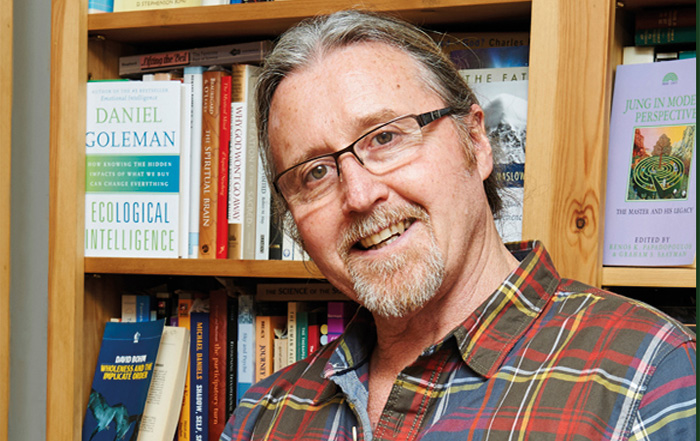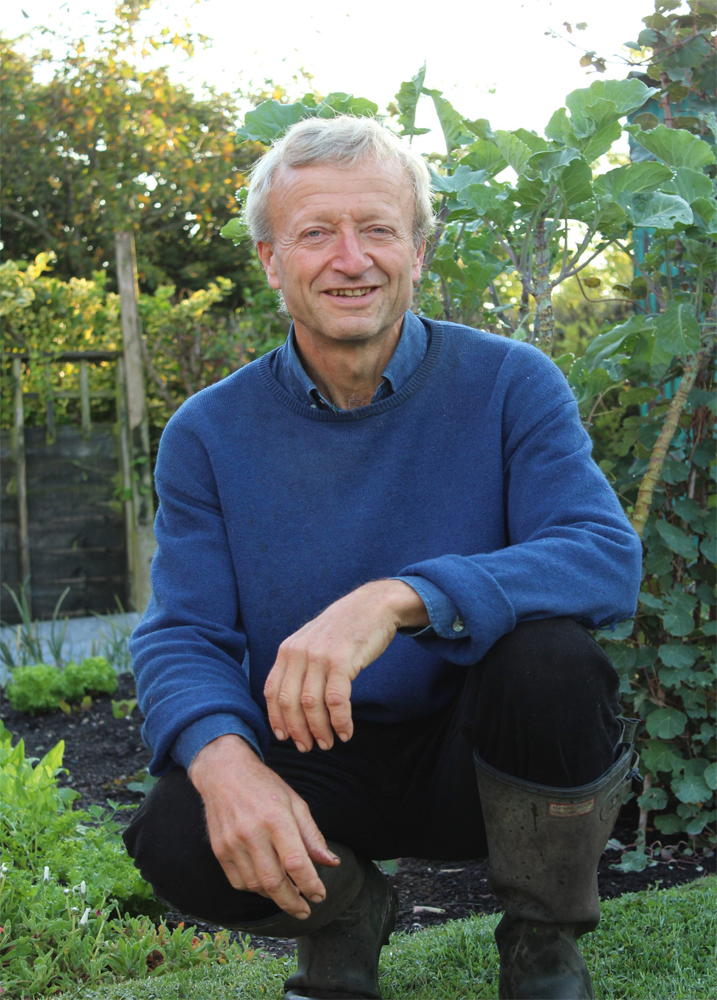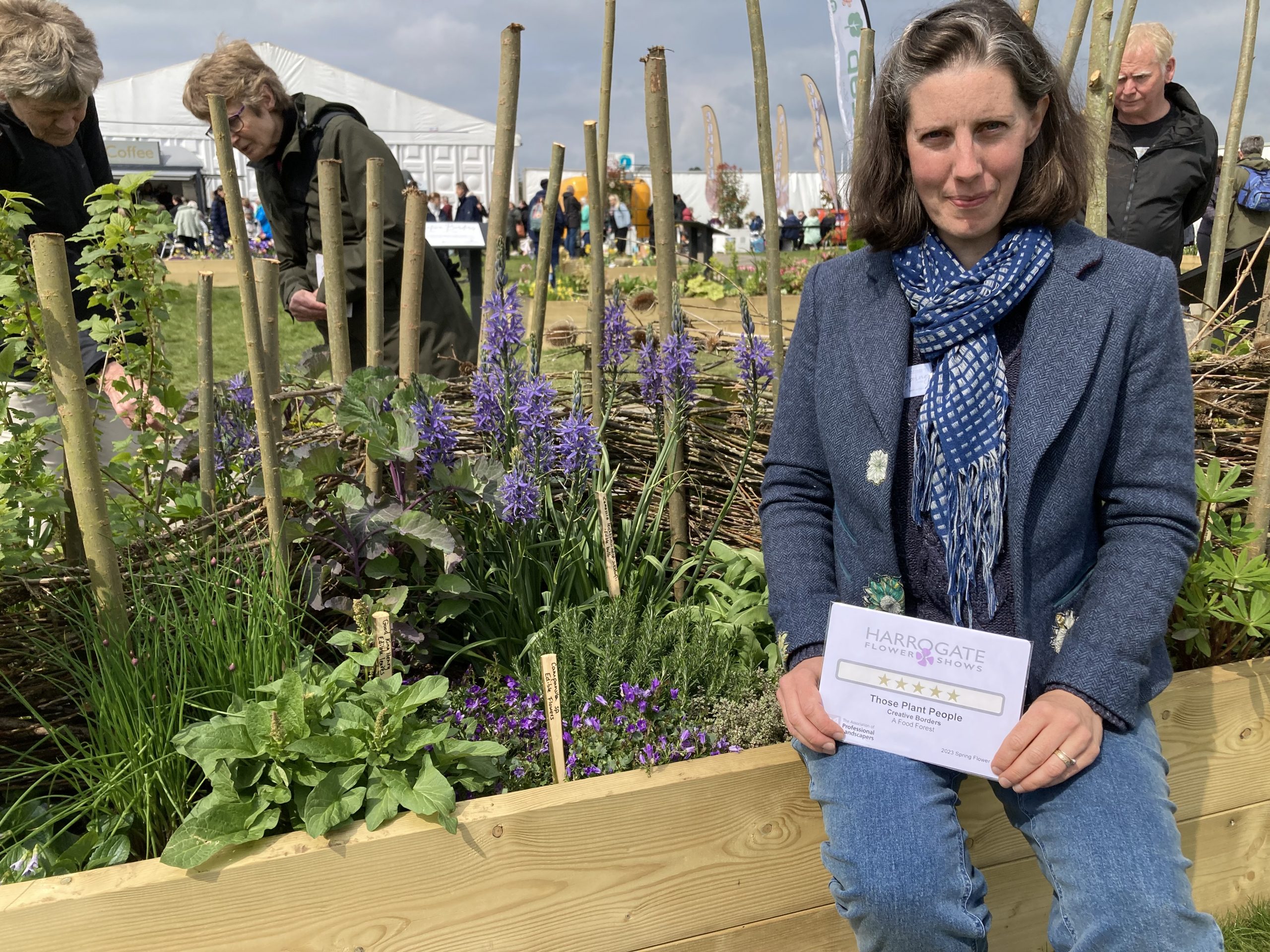
The Scientific and Medical Network have awarded their 2014 Network Book Prize to permanent Publications author, Dr Mick Collins for his book The Unselfish Spirit. The book is about psychospiritual transformation and how we can collectively grow our consciousness to solve the complex web of challenges that threaten life on earth. The Book Prize is awarded to the most significant book or books written by a member during the year. David Lorimer, Programme Director of the Scientific and Medical Network and has edited Network Review since 1986. He is the originator of the Learning for Life Values Poster Programme, which has reached over 40,000 young people in the last four years. He has written an excellent and thought-provoking review of The Unselfish Spirit: Mick Collins’ own remarkable spiritual journey underpins this erudite and practical book about the fundamental ecological challenge we have created with our thinking, values and actions. He is currently a lecturer in occupational therapy and director of admissions for the faculty of medicine and health sciences in the University of East Anglia. After leaving school at 15, he worked as a labourer and then join the infantry. At the age of 21, he spent the next six years travelling around the world and finished up in a Buddhist monastery for three years. As well as studying Buddhist psychology in depth, he began to have some powerful spiritual experiences that culminated in a spiritual emergence/emergency that took another two years to work through. After this, he found his current occupation, also training in many other disciplines. His Ph.D. drew on his experiences of spiritual emergency, which also underpin this book. The narrative is punctuated by many striking dreams, and Jung is one of his central influences. In the dedication at the beginning of the book, Mick hopes that humanity can find ways to live more deeply, both inwardly and outwardly, to actualise our full human potential. This involves a fundamental insight into the interconnectedness of all life and consciousness, and at the same time a commitment to co-creating a better future. Perhaps the central theme of the book is the relationship between being and doing as complementary functions. Mick points out that the crisis we face is not only ecological, but also spiritual. You could say that we have a crisis of perception and therefore of values and hence of actions. The discourse of the current British electoral campaign is a good illustration as it focuses almost exclusively on economic factors, which in turn ultimately depend upon ecosystem services. The focus is short-term power that completely fails to address longer-term trends. The quality of our actions corresponds to our inner life and therefore our being. In Mick’s case, his emphasis is on doing, but with a background of transpersonal thought and actual experience of interconnectedness. Therapists are well aware of the limitations of the one-sided ego, unconscious of other aspects of the psyche. Jung developed the concept of individuation as a journey from the self to the Self that also involved soul work; in this case, this was partly expressed in the very simple life of the sage that he lived at Bollingen without any modern conveniences. He played, sculpted, cut wood and cooked (the extraordinary detail of his inner journey is laid out in The Red Book). Transformation is central to this thesis and journey, which corresponds to an initiation of death and rebirth. We have far more potential than many people realise, and an encounter with the numinous can give us a first-hand experience of what mystical heritage refers to. In Mick’s case this includes some striking dreams and synchronicities that are just as important as external events in shaping our lives. Indeed, he cites an extraordinary encounter of a patient with a crow that he found on top of his car and that hopped onto his shoulder. Many writers have emphasised that our problems cannot be resolved by the same kind of thinking that created them. Mick reiterates this point and argues that a critical mass of awakened people must engage in the inner work required to bring about a tipping point. The critical mass may be no larger than 5%, corresponding to what Toynbee called the creative minority and some preliminary research results of the effect of meditation on the collective (David Hawkins makes a similar point in his book Power and Force reviewed last April). It is both self and society that need to be alchemically transformed. One powerful dream where he is left holding a young lion – lamb indicates the marriage of the masculine and feminine that needs to come forth. Mick proposes six dimensions for collective transformation: deep learning, deep citizenship, deep democracy, deep culture, deep ecology and deep occupations. Engaging in this work will help overcome the disassociation and perceived separation from nature in our mechanistic culture. Once we have aligned with the interconnected oneness of life, we can join with others and participate in this process of co-creation – the reach of Internet sites such as Avaaz is a good indication of this emerging process. The reflective exercises at the end of each chapter are an excellent way of engaging readers as they go along. Mick remarks that what we do to the world, we do to ourselves. He suggests that our personal engagement can use the acronym EPIC, standing for qualities of experience, participation, intelligence and consciousness to enable a greater coherence between doing, knowing and being. There is also an underlying need for healing to which dreams can contribute if we are aware enough to pay attention to them. The Greek god Asklepios stands for the inspiration for transformative healing that also involves, as John Moriarty pointed out, an archaeology of the psyche where more primitive impulses are excavated and inwardly transformed. There are a couple of dinosaur dreams that are indicative in this respect. Mick reminds us that we are all works in progress and that the journey is ‘a path that is made by walking’; also that we are the world and the world is us. Hence the main question is how we will change relationships to nature and each other, transcending mechanistic objectivity and separation to realise a participatory vision in action. He suggests that we need to shift from being worriers to warriors and gives some moving examples of inspirational and transformative action. For example, a cellist from the Sarajevo Opera saw 22 people waiting in a bakery queue being blown to pieces by shellfire. For the next 21 days, he sat outside the shop and played Albinoni’s Adagio – ‘a profound message of hope and beauty in a world of carnage and misery’ and a powerful symbolic action. There can be no certainty that the process so eloquently described by Mick in this inspirational book will actually come about. It is more likely that we will face a series of crises that could have been avoided with the kind of preemptive process described here. However, it does depend upon a critical mass of people shifting not only their thinking and awareness, which means that we can each make our own contribution to this unprecedented collective undertaking, perhaps partly with some symbolic actions like that described above. Just as the boy threw individual starfish back into the sea, each one of us can make a difference in our own sphere of influence.
For more about Mick Collins click HERE



